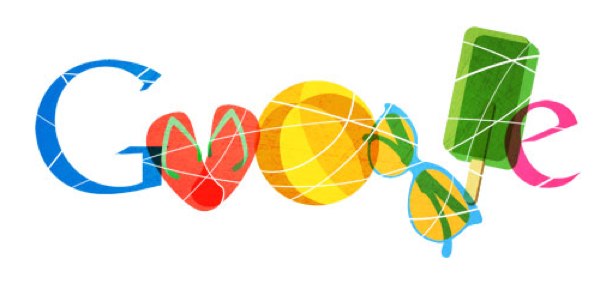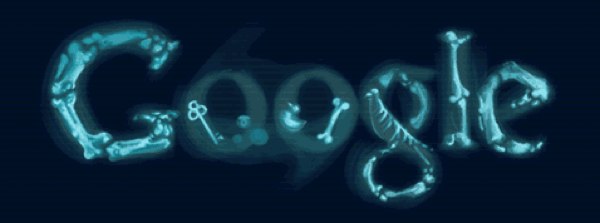I have a question: how did you arrive to this article? Did you find your way here from Google Search? If by the slight chance you did, you might want to pay attention — you are part of a dying breed. Google Search is past its peak. Those cute Google Doodle’s are all that’s left.
I became acclimated with Google Search while I was in middle school, while typing away at an old Mac computer in keyboarding class. I don’t remember exactly where I heard about Google, but I do remember that I was the first one in my class to use it. It was different — much more so than the likes of Dogpile, AskJeeves, and Yahoo, which were also popular at the time. But Google worked; it worked really really well. And it wasn’t long before all of my classmates were using it too.
I became attached to Google, and that bond has not broken through all of these years. To say that I trust this company would be an understatement — I’ve performed hundreds of thousands of searches, sent thousands of e-mails, scheduled hundreds of events, written hundreds of documents, and had my every move tracked by Google for more than a decade. I even have Google with me wherever I go; I have an Android phone.
Google could do no wrong.
I had surrendered my digital life to Google, and I was happy with that. Google was always the hippest thing on the Web — they were involved with everything. I was even convinced at one point when I was younger that Google would rule the Internet (and in some ways I was right).
But even though the company was on the bleeding edge of technology, there was bound to be someone else who would step up to challenge Google. The funny thing, though, is that this person didn’t even directly challenge Google. But he didn’t know that back then. The person in question is Kevin Rose, and he, too, had something up his sleeve that would forever change the way people discover information online.
The Rise of Social Media
Kevin Rose created Digg in 2004. It quickly became the most popular social media site on the Internet. The idea was simple: you submit a piece of content, it shows up on the site, others read the content, and users could “Digg,” which would make it more popular, or down vote the content. It took up where Slashdot left off and revolutionized the power of the community.
Almost immediately it no longer mattered where you ranked on Google Search. If you wanted to become popular on the Web, you’re best bet was to get on the front page of Digg. It became so important that Digg’s power users were held in high regard. There were also entire groups dedicated to gaming the system (I would know). But this one website had the power to make or break any other website on the Web.
This was real change. Google was missing out.
But it was the concept, not the site itself, that was the true star of the time. This was a new age of information, where people, and not an algorithm, could determine what was worthy of millions of views on the Web. It was, in a way, people-controlled search. Humans became the filters of the Web, and everyone who was a user of Digg understood why this was so important — there was too much information to begin with.
Other sites like Reddit, Mixx, Buzz, Propeller and more have followed in Digg’s footsteps. However, most, if not all, of these websites are still based on that simple concept — people want to know what other people are interested in. These websites have also spurred on new types of social media websites like Twitter and Facebook, which encourage communication and sharing amongst its members. We all know how important these sites have become (and they might ultimately become the undoing of sites like Digg and Reddit).
Still, even at this point where the likes of Digg came into the spotlight, I still relied on Google for the longest time. I searched on Google whenever I could, and it served me well when doing research for things like articles and other general information. I also remember seeing every single Google Doodle that was drawn for Google’s homepage, because Google was an everyday thing for me. It was the first site I saw when I opened up my browser.
But that was then.
Search Is Different
Now, in the present, my interaction with Google Search has faded even faster than I could imagine. It’s no longer my start page, for one. Furthermore, I rarely make searches on it when compared to even a few years ago. I simply don’t find the website as useful as it once was, because sites like Twitter and Facebook are where I discover information.
So, for fun, I went through my Google Search History and decided to take a look at how my search habits have changed. I have my search history all the way back until October of 2007.
Back in October of 2007, many of my searches were related to motivational and inspirational content, as I had just started getting into reading memoirs and autobiographies of famous people because I was starting a business. In particular, I was obsessed with researching Professor Randy Pausch, who became famous for a speech he gave about living life when he was expected to die from pancreatic cancer. Unfortunately, he died in 2008, but did succeed in spreading his message to the world. But I was searching often.
I used Google Search every single day in October 2007. I made roughly 60+ searches per day on average throughout the month.
On October 2009, however, things were a bit different. I was obsessed with finding public relations contacts for big name companies. I used Google a lot to search for names that I had obtained from LinkedIn. I also performed many searches with the goal to find images for articles I was writing. But most of these searches were only out of necessity. Of the genuine searches I did do, they were mostly to discover websites for obscure companies I was writing about for Mashable or defining words from Google’s “define” functionality.
But I didn’t use Google Search every day during October 2009. I performed, from my estimation, around 30 searches per day.
The math might be a little bit off, but I’d say that I performed roughly 50 percent fewer searches from 2007 to 2009. It’s interesting because I am bombarded with more information now than I was in 2007, yet I’m searching less.
This means that social media has had a significant impact on what information I interact with on a daily basis. In fact, most days I can simply keep Twitter, Facebook, and Reddit open and get along fine, without having to visit Google Search at all. I’ve also taken a liken to Quora.
Sure, I use Google when I have no idea of where to begin, and maybe this is part of the reason why Google Search will never truly die, but, more often than not, I already know where I can start finding information. In most cases it isn’t with Google, and that is something worth taking notice about.
Let’s just say that I don’t see too many Google Doodles nowadays. Do you?






I don’t see many Google Doodles because I’ve switched from the start page to the browser search bar which in my oppinion is just faster…
But I still stick to Google and not to social sites like Digg (which in fact I don’t really use at all) or Facebook (which I mainly use for the chat function)… but Twitter on the other site is something like a live RSS…
Speaking of RSS – I most oftenly use Google Reader for new content … so I think that what you describe in your article is on one side true but not global.
I totally agree with Asmodiel. Digg is good for fining viral videos and the like but for my everday searches that need done to do business, Digg is worthless. Google is exatly what I need and works better than any other site out there. I could care less about trending topics and the new fads on the Internet. I look people, business’s, infomation and for that Google just cannot be beat.
This article, while it contains some factual information, is mostly one persons opinion of how he uses the internet and does not properly reflect eveyone. I personlly found it to be a waste of time.
Google is so much more than search nowadays, it’s geo-location, it’s email, it’s about moving the web forward. Google’s main business may still be search (and advertising), but the have many more products to look for